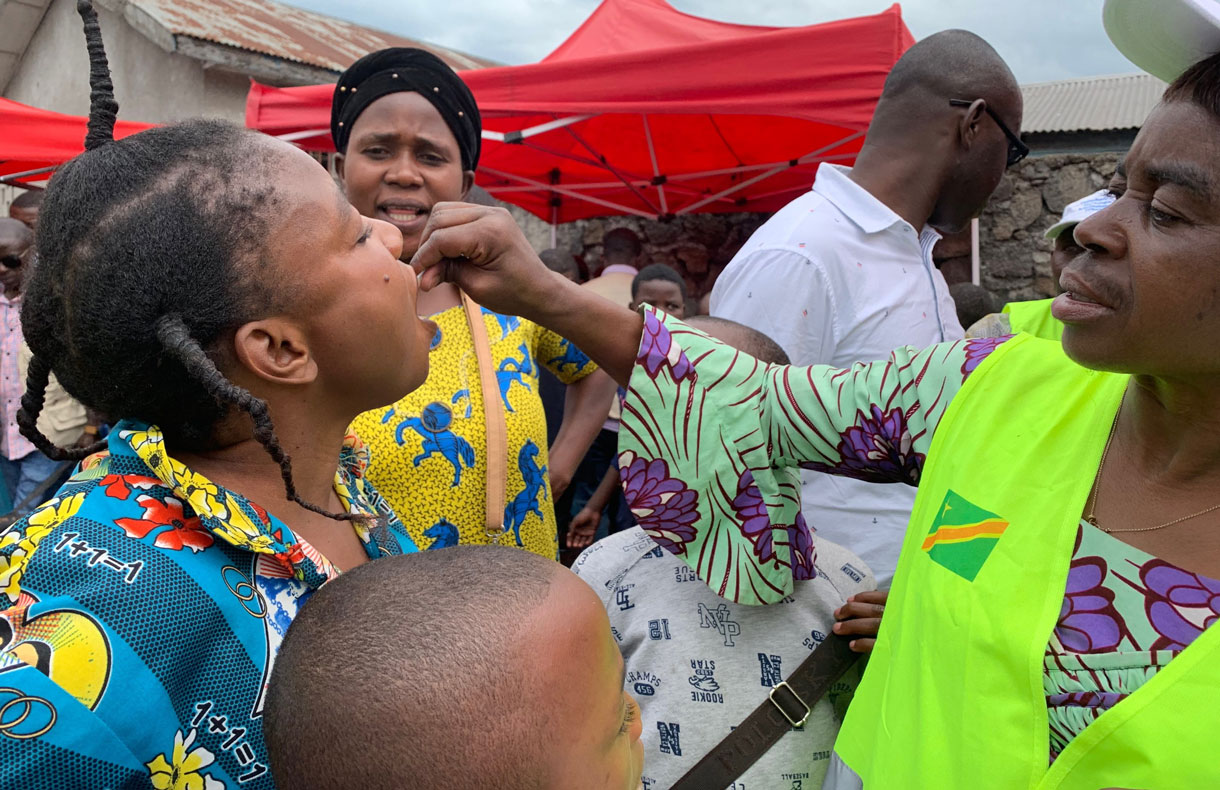Geneva, 5 November 2019 – The Democratic Republic of Congo (DRC), with support from Gavi and partners, will protect millions against deadly diseases thanks to three immunisation drives launched last week: a largescale measles follow-up campaign, an emergency campaign to provide a 2nd dose of oral cholera vaccine (OCV) to affected populations in North Kivu, and introduction of rotavirus vaccine into the national routine immunisation programme.
“As the Ebola outbreak continues in eastern regions of DRC, it is important to remember the other epidemics that are inflicting suffering on the most vulnerable, particularly children,” said Dr Seth Berkley, CEO of Gavi, the Vaccine Alliance. “Measles and cholera have already claimed more Congolese lives in 2019 than Ebola. Gavi is committed to supporting the country in its efforts to respond to all of these diseases while ensuring the country’s regular immunisation programme has the resources to routinely protect children against other diseases such as rotavirus.”
The measles follow-up campaign will target 18.9 million children between six and 59 months old, and will be deployed in all provinces in three phases between now and January 2020. The campaign aims to reach all children within the targeted age range, particularly those who may have been missed by routine immunisation. According to WHO, the current measles outbreak in DRC has resulted in 222,939 cases and 4,455 deaths this year.
Simultaneously, as part of the emergency response to a cholera outbreak, more than 800,000 people in North Kivu province received a second dose of the oral cholera vaccine (OCV). The first dose was administered to the same target population through an emergency vaccination campaign launched in May 2019. DRC has reported over 23,000 cholera cases and 395 deaths since the beginning of 2019. All OCV doses are taken from the global cholera vaccine stockpile, which is fully funded by Gavi. The use of the stockpile for outbreak response is managed by the International Coordinating Group (ICG), which features representatives from WHO, UNICEF, IFRC and MSF.
Lastly, DRC has introduced rotavirus vaccine into its routine immunisation schedule, beginning with 10 provinces. By next year, coverage will be expanded to all provinces, reaching 2.89 million children by the end of 2020. This introduction is part of DRC’s Emergency Plan for the Revitalisation of Routine Immunisation (Mashako Plan), which aims to raise routine immunisation coverage by 15 percentage points by 2020. Rotavirus is the leading cause of deadly diarrhoea in children worldwide, affecting mostly infants and young children. Over 95% of rotavirus deaths are in low-income countries in Africa and Asia where access to diarrhoea treatment is often limited or unavailable. Vaccination is therefore the best way to prevent rotavirus illness and death.
These immunisation activities will be implemented by the DRC Ministry of Health’s Expanded Immunisation Programme with support from partners such as WHO and UNICEF.

